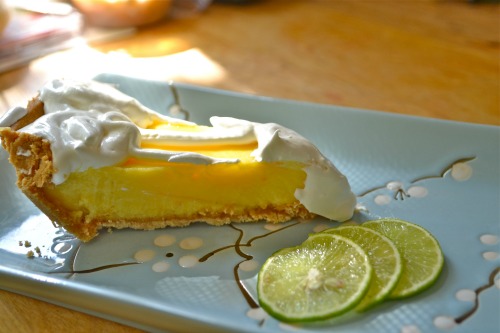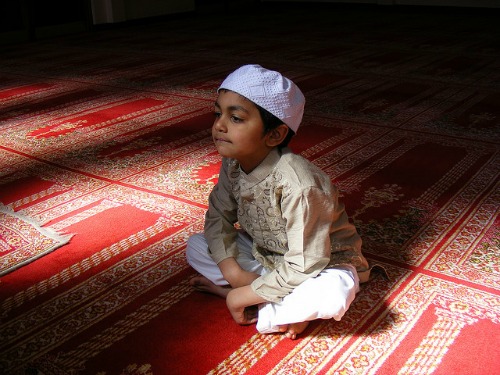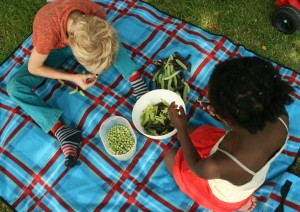
by ThinkSayBe | Aug 8, 2014 | 2014, Awareness, Communication, Environment, Family, Home, Kids, Motherhood, Parenting, ThinkSayBe, Traditions, USA, World Motherhood
 Do you remember those movies in which a new family moves into a neighborhood, and one of the neighbors brings them a pie as a welcoming gesture? Maybe you have been the recipient of such a gift, or maybe the giver. Maybe, you have done neither and additionally do not know your neighbors. I must say I have been guilty of not being the pie-bringer, although it always looked so nice and like the joyful & peaceful thing to do.
Do you remember those movies in which a new family moves into a neighborhood, and one of the neighbors brings them a pie as a welcoming gesture? Maybe you have been the recipient of such a gift, or maybe the giver. Maybe, you have done neither and additionally do not know your neighbors. I must say I have been guilty of not being the pie-bringer, although it always looked so nice and like the joyful & peaceful thing to do.
Over the last two years I have been better at this, but truth be told, my mother would be doing a much better job and by now she would know everyone in half mile radius! There is one neighbor with whom I have a food exchange every so often. He is the one who calls on us and we can call on him when in need of some flour, or bug spray (Florida bugs want their swamp back), or someone to keep an eye out for our teen if we aren’t home when she gets back from school.
A man lives down the road and if it weren’t for his injured dog, we may have never struck a conversation. There is a guy everyone goes to when they need their car washed, gutters cleaned, or lawn mowed for a little money. Down the road there is a sweet older lady with a name that makes you want to know if she is a spy or what intriguing life stories she may have. I haven’t asked her yet, but I will. For now she is my ‘hugging’ neighbor while with all the others I exchange nods, waves, and the occasional, “How do you do?”, and “Just trying to stay out of this heat!” The corner/convenience store is owned by some cool people, whom I would feel safe sending my teen girl to buy groceries from.
That’s really it. My motivation for getting to know my neighbors has realistically been for the safety of my children and my family as a whole.
I want to know we can walk around safely, and that no one would bother my daughter. In the event that a stranger walked on this road, I want to know that my neighbors will intervene on my behalf to ensure my daughter’s safety. I want to know that if she goes to the convenience store on her own, that they will give her exact change if she miscounts.
Ideally I would know all my neighbors. I would have been in their homes at least once if it seemed safe, and if not that, I would at least know their names. So what’s stopped me? Maybe wanting to stay out of people’s business. As a photographer I have become sensitive to people’s want for privacy, and maybe I am spreading that sensitivity to situations that don’t really need it. After all, some people are just camera-shy, but would love to share a recipe, or a story, or know they can come to you if they need their trash bin put on the curb if they won’t be here on trash day.
Maybe getting to know our neighbors is a part of making make the world seem less crazy, technological advances less calculated, and absence of family less cold as the family that neighbors can be brings warmth in our lives. Of course this may be the case if our neighbors aren’t what makes the world a crazy, sad, and maddening place.
How about you and your family – do you know your neighbors well? Do you think there was more emphasis on getting to know your neighbors in years past? Does the type of neighborhood you live in play a factor in whether you get to know the people next door, or make you keep your distance?
Thank you for reading. Please share your thoughts & experiences 🙂
This is an original post to World Moms Blog by Sophia. You can find her blogging at Think Say Be and on twitter @ThinkSayBeSNJ.
Photo credit to the author.
I am a mom amongst some other titles life has fortunately given me. I love photography & the reward of someone being really happy about a photo I took of her/him. I work, I study, I try to pay attention to life. I like writing. I don't understand many things...especially why humans treat each other & other living & inanimate things so vilely sometimes. I like to be an idealist, but when most fails, I do my best to not be a pessimist: Life itself is entirely too beautiful, amazing & inspiring to forget that it is!
More Posts
Follow Me:


by Ecoziva (Brazil) | Aug 4, 2014 | 2014, Body Image, Brazil, Food, Life Lesson, Maternal Health, Nutrition, Traditions, World Motherhood
 I have been an emotional eater for over two decades and over the past six years or so – when I became fully aware of the matter – I have approached it from multiple angles and using all sorts of techniques. I have worked on issues related to my father’s death when I was a teenager, my relationship with my mother and childhood issues of all sorts. I have undergone several different types of therapy, from the more traditional ones to art therapy, Gestalt therapy, family constellations and energy psychology. I have used EFT, NLP, reiki, homeopathy, ThetaHealing and many other alternative treatments.
I have been an emotional eater for over two decades and over the past six years or so – when I became fully aware of the matter – I have approached it from multiple angles and using all sorts of techniques. I have worked on issues related to my father’s death when I was a teenager, my relationship with my mother and childhood issues of all sorts. I have undergone several different types of therapy, from the more traditional ones to art therapy, Gestalt therapy, family constellations and energy psychology. I have used EFT, NLP, reiki, homeopathy, ThetaHealing and many other alternative treatments.
The positive side has been that I have learned a lot throughout this process. Trying to create a healthier relationship with food has undoubtedly been what has most helped me stay on my personal/spiritual growth path over the past few years.
Emotional eating is a complex issue that can have multiple causes. These causes generally carry specific purposes which might still “serve” the emotional eater in certain ways, such as eating for a sense of comfort or protection or even to “numb” oneself of difficult feelings. Thus, they can be complicated to release unless the person becomes aware of the underlying events that gave food such emotional significance and are able to let go of that.
For instance, it might be that, as a child, someone gave the person something sweet every time he/she was upset, so the person developed the habit of eating sweets every time negative emotions come up. Letting go of that habit would then involve things like: becoming aware of the pattern and how it began, finding ways to heal the inner child that is used to being given sweets instead of the true attention or emotional support they need when negative emotions come up, and realizing that there are now adult ways of dealing with negative emotions.
Additionally, I believe we can only stop emotional eating when we truly want to. It is not like one consciously wants to continue having an unhealthy relationship with food (although one could, as surrender can also be a good tool!) but it can take time to become aware, deal with and let go of the multiple unconscious blocks around the pattern.
In my case, for example, I recognize that I have frequently side stepped certain issues and have not gone as deep as I could in certain treatments. On the other side, respecting our pace and giving ourselves the time to deal with the often painful issues – as opposed to judging ourselves and making ourselves wrong for “failed” attempts – is essential.
In my case, after three years of great improvement, my second pregnancy (which ended up in a miscarriage), followed by the pregnancies and births of my two youngest children, brought my emotional eating back to square one.
It was no surprise to me that pregnancy would once again bring up issues that would be difficult for me to deal with, but I expected that things would get better after the babies were born and began to get older. However, even though my youngest is now 16 months old things have worsened terribly and over the past few weeks I have gained more than 5 kg (11 lbs).
I have still not figured out what is triggering this new fallback, yet while using a combination of the techniques I have learned over the years, a story I hadn’t thought of for many years came to mind. I will tell that story in the next part of this post.
TO BE CONTINUED…
And you? Please share your stories about your relationship with food. Do you interfere in your children’s relationship with food?
This is an original post to World Moms Blog from our writer in Brazil, Ecoziva.
The image used in this post holds a Flickr Creative Commons attribution license.
Eco, from the greek oikos means home; Ziva has many meanings and roots, including Hebrew (brilliance, light), Slovenian (goddess of life) and Sanskrit (blessing). In Brazil, where EcoZiva has lived for most of her life, giving birth is often termed “giving the light”; thus, she thought, a mother is “home to light” during the nine months of pregnancy, and so the penname EcoZiva came to be for World Moms Blog.
Born in the USA in a multi-ethnic extended family, EcoZiva is married and the mother of two boys (aged 12 and three) and a five-year-old girl and a three yearboy. She is trained as a biologist and presently an university researcher/professor, but also a volunteer at the local environmental movement.
More Posts

by Salma (Canada) | Aug 1, 2014 | 2014, Bilingual, Canada, Childhood, Communication, Cultural Differences, Culture, Education, Family, Homeschooling, Language, Life Lesson, Multicultural, Relationships, Religion, Salma, Traditions, World Moms Blog, World Motherhood, Younger Children
 On her visit to our home last October my mother had a lot of one-on-one time with my three year old son. While I was in the hospital giving birth to my fifth child, she was asking some serious questions. In this short period of time my mother came to a serious conclusion; her grandson doesn’t know about God. (more…)
On her visit to our home last October my mother had a lot of one-on-one time with my three year old son. While I was in the hospital giving birth to my fifth child, she was asking some serious questions. In this short period of time my mother came to a serious conclusion; her grandson doesn’t know about God. (more…)

An Imperfect Stepford Wife is what Salma describes herself as because she simply cannot get it right. She loves decorating, travelling, parenting,learning, writing, reading and cooking, She also delights in all things mischievous, simply because it drives her hubby crazy.
Salma has 2 daughters and a baby boy. The death of her first son in 2009 was very difficult, however, after the birth of her Rainbow baby in 2010 (one day after her birthday) she has made a commitment to laugh more and channel the innocence of youth through her children. She has blogged about her loss, her pregnancy with Rainbow, and Islamic life.
After relocating to Alberta with her husband in 2011 she has found new challenges and rewards- like buying their first house, and finding a rewarding career.
Her roots are tied to Jamaica, while her hubby is from Yemen. Their routes, however, have led them to Egypt and Canada, which is most interesting because their lives are filled with cultural and language barriers. Even though she earned a degree in Criminology, Salma's true passion is Social Work. She truly appreciates the beauty of the human race. She writes critical essays on topics such as feminism and the law, cultural relativity and the role of women in Islam and "the veil".
Salma works full-time, however, she believes that unless the imagination of a child is nourished, it will go to waste. She follows the philosophy of un-schooling and always finds time to teach and explore with her children. From this stance, she pushes her children to be passionate about every aspect of life, and to strive to be life-long learners and teachers. You can read about her at Chasing Rainbow.
More Posts - Website

by Katinka | Jul 28, 2014 | 2014, Adoption, Adoptive Parents, Being Thankful, Belgium, Birth Parents, Childhood, Contest, Cooking, Cultural Differences, Discipline, Ethiopia, Family, Food, Health, Kids, Life Balance, Motherhood, Multicultural, Nutrition, Parenting, Siblings, World Motherhood, Younger Children
 I’ve yet to meet a mom who is not monitoring her kid’s eating habits. Some might even be obsessed over it, others just make sure their kids eat enough or don’t overeat. Food can be filled with cultural, health or moral values and seems an important subject in most families I know.
I’ve yet to meet a mom who is not monitoring her kid’s eating habits. Some might even be obsessed over it, others just make sure their kids eat enough or don’t overeat. Food can be filled with cultural, health or moral values and seems an important subject in most families I know.
Every single one of the moms I know, seems to have her personal truth about food, or is at least searching for it. I know quite a few moms who vouch for strict vegetarianism, sugar free, all organic, low-carb, macrobiotic, low-fat or a mix of those. Others cook without lactose, gluten, sugar, eggs, nuts, soy and other allergy or intolerance boosters, by necessity or by conviction. But there’s also quite a number who just like to stick to their grandmothers’ favourite mashed potatoes with pork chops and piccalilli, because that’s what they were raised with.
Myself, I mix quite a bit of the above. My life is all about compromises. As a student, I used to be vegetarian, but now we eat vegetarian for only about 3 days a week. I also restrict the amount of lactose, because of my daughter’s (mild) intolerance. I make sure they eat at least one piece of fruit per day, but most days it’s two or three. And because we are Belgian, we have our two-weekly take out of ‘French’ fries, which originally came from Belgium. Or maybe even from Flanders.
I would not call myself obsessed, but I do keep a detailed mental track of what my kids eat in a day, and try to compensate by the 80/20 rule I adopted from a fellow World Mom: if they eat healthy for 80% of the time, that will make up for the 20% they eat junk.
When a mom has found her personal truth about food, obviously she wishes for her kids to eat by it; which they aren’t likely to do without a struggle. Not after they’ve tasted the Belgian fries, they won’t.
When my oldest was younger, I used to think I had it all together though. He ate whatever vegetable I gave him and his favourite dish was Brussels’ sprouts. I even recall quite some occasions on which I, the former vegetarian, bribed him into eating his meat by promising him an extra stem of broccoli. After a while, even the meat didn’t pose a problem anymore. He would eat whatever I served him.
Those good old days are over now.
It all started when our daughter arrived, age 2.5. She came from Ethiopia and was not used to our diet, not mentally, but also not physically. The first time I served her something green, she just threw it on the floor. Not out of a whim, but because she was clearly convinced it was not edible. She even tried to take it out of my mouth. Having been fed mashed dishes all her life, she was also not used to chewing. She did like bread and she did her best chewing it, but we had to take her to a physiotherapist to sooth her jaw pains. So we customized our cooking to her and introduced new stuff every once in a while. The one dish that never posed a problem was, indeed, our Belgian fries.
Meanwhile, our son, then 5, seemed to finally grasp that there was such a thing as rejecting food. I don’t know whether it was his sister’s example, the TV shows he started watching, his classmates or just normal evolution, but he started getting more selective each month. He also ate with his hands more often, just like his sister was used to. I went from having one kid with excellent eating habits to two picky, messy eaters.
After two years of convincing myself it was just a phase, this year I started implementing some strategies to get them to eat more balanced. Ultimately, what they were eating wasn’t all that bad but I was getting tired of the drama and the struggle to get them to eat what I believed was good for them. And most of all, I wanted them to develop the discipline to choose healthy by themselves, and not just because I ordered or rewarded them.
First, I tried the Yucky List. A colleague of mine had it at home, and it worked perfectly for her family. The idea is that it is only natural to have different tastes and that you don’t need to like everything. The concept is that each family member can have three dishes they really don’t like, on that list. When it is served, they are allowed to refuse it and have bread instead. Or hope for a mom who cooks two different dishes in advance. Of course over time, you can change your preferences but when a fourth dish you don’t like is served to you, you have to eat it, before you can put it on the list (replacing another).
It seemed promising but after a few weeks, the kids started to change their list about every other day. Way too many family dinners were filled with ‘I will put this on my yucky list for sure!’ and a lot of moaning and struggling, which didn’t really lighten the mood as I had hoped it would. We might pick it up again when they are older but for now, it doesn’t work for us.
After that, I changed my strategy to handing out a Yucky Coupon, Bah Bon in Dutch. I borrowed the idea from a friend who used to do cooking for youth camps. At these camps, each of the kids was given one Bah Bon for the duration of the camp. They could hand it in if they didn’t want to eat one of the meals that was cooked for them. Of course, they only could do that once. And the ones who still had the Bah Bon at the last day of camp, could hand it in, in exchange for ice cream.
So that’s how we do it now and it works like a charm! The kids both have their weekly Bah Bon, which is very conveniently posted on the magnetic wall next to the dinner table. Whenever they complain about dinner (or lunch or breakfast), we just point to their Bah Bon and remind them they can hand it in if they wish. No strict words, just giving them a choice and a visual reminder. Our son hasn’t missed his Sunday ice cream once. Our daughter has, once, and she’s not likely to miss another.
Of course, this will only work if ice cream is really a treat for your kids. Mine don’t really get candy or other sweets that often, so for them this works perfectly.
And of course, it’s still kind of a bribe. But I like it much more than the daily ‘If you don’t eat it, you can’t have desert’ bribe. For one, because we don’t have desert every day. Second, because they have to manage the discipline to work all week for their ice cream, rather than getting an instant reward. Third, because I don’t exactly sell the ice cream as a bribe or reward but rather as an interpretation of the 80/20 rule: if they eat healthy and balanced all week, it is all right to have something unhealthy every once in a while.
Most importantly, I like this system because the kids themselves really like this system. They like being in control of what they (don’t) eat without any pressure from us, and most of all they absolutely love our weekly ceremony when they officially hand in the Bah Bon they saved in exchange for their well deserved treat.
Do you have a personal or cultural take on the food you serve your kids? And do you need similar strategies to convince them about it?
This is an original post to World Moms Blog by K10K from The Penguin and The Panther.
The picture in this post is credited to the author.
If you ask her about her daytime job, Katinka will tell you all about the challenge of studying the fate of radioactive substances in the deep subsurface. Her most demanding and rewarding job however is raising four kids together with five other parents, each with their own quirks, wishes and (dis)abilities. As parenting and especially co-parenting involves a lot of letting go, she finds herself singing the theme song to Frozen over and over again, even when the kids are not even there...
More Posts

by Tara Bergman (USA) | Jul 25, 2014 | 2014, Kids, Motherhood, Parenting, Tara B., Transportation, Travel, USA, Vacationing, World Motherhood, Younger Children
 It was the final leg of our most recent trip. It should have been a 5 ½ hour direct flight, but due to weather delays, it ended up being 8 hours inside a plane. My husband and I were traveling with our sons, ages 8 and 4, and we were seated on opposite sides of the same row. I was seated with my 4 year old and an older woman. In front of us was a family: mom, dad, 4 year old boy, and a girl approximately 15 months old on the mom’s lap. It was an evening flight, and the kids in front of me were in pj’s, clearly indicating the parents’ hope that they would fall asleep upon take off. Things couldn’t have gone more differently. (more…)
It was the final leg of our most recent trip. It should have been a 5 ½ hour direct flight, but due to weather delays, it ended up being 8 hours inside a plane. My husband and I were traveling with our sons, ages 8 and 4, and we were seated on opposite sides of the same row. I was seated with my 4 year old and an older woman. In front of us was a family: mom, dad, 4 year old boy, and a girl approximately 15 months old on the mom’s lap. It was an evening flight, and the kids in front of me were in pj’s, clearly indicating the parents’ hope that they would fall asleep upon take off. Things couldn’t have gone more differently. (more…)
Tara is a native Pennsylvanian who moved to the Seattle area in 1998 (sight unseen) with her husband to start their grand life adventure together. Despite the difficult fact that their family is a plane ride away, the couple fell in love with the Pacific Northwest and have put down roots. They have 2 super charged little boys and recently moved out of the Seattle suburbs further east into the country, trading in a Starbucks on every corner for coyotes in the backyard. Tara loves the outdoors (hiking, biking, camping). And, when her family isn't out in nature, they are hunkered down at home with friends, sharing a meal, playing games, and generally having fun. She loves being a stay-at-home mom and sharing her experiences on World Moms Network!
More Posts

by Maureen | Jul 24, 2014 | 2014, Eye on Culture, Indonesia, Scoops of Joy, World Motherhood

An Indonesian father with child
Would you believe me if I tell you I have NEVER heard of Father’s Day until I moved to America in 2005.
Yes, true story!
Here in Indonesia we just simply don’t have Father’s Day.
We do have Mother’s Day on December 22, 2014. The holiday is celebrated on the anniversary of the opening day of the first Indonesian Women Congress, which was held from 22 to 25 December 1928. The Congress was attended by 30 feminist organizations from 12 cities in Java and Sumatra. In Indonesia, feminist organizations have existed since 1912, inspired by Indonesian heroines of the 19th century, e.g., Kartini, Martha Christina Tiahahu, Cut Nyak Meutia, Maria Walanda Maramis, Dewi Sartika, Nyai Ahmad Dahlan, Rasuna Said, etc. The Congress intended to improve women’s rights in education and marriage.
We also have Kartini Day on 21 April to celebrate the emancipation of women spearheaded by an activist, Raden Ajeng Kartini.
So why do we have no Father’s Day then?
Could it be because we as a country are already too patriarchy?
I actually wonder about that too. So like a good citizen, I turned to Google and did a little research.
What do you know, actually we do have one and it’s called “Hari Ayah” in Indonesian which means Father’s Day. It was declared in 2006 it falls on 12 November. That explains why very few people are aware of this and it’s not popular. Maybe because we don’t commercialize it as much as mother’s day? I have never seen an advertisement for local Father’s Day.
Technically, men still perceived to have higher place than women in Indonesia. Like it or not, that’s the truth. We are still plagued by social injustices caused by a male-dominated society that abandons women to the whims of their husbands. So maybe that’s why it is more ‘common’ to celebrate Mother’s Day.
Being from a whole intact family unit of a father and a mother doesn’t guarantee that the father is always hands-on, and I think this happens in many different countries, too. I have personally seen mentally checked out fathers who leave all the responsibilities of raising children solely to their wives by justifying they are too busy making a living for the family. Many men still believe their fatherhood role is simply to provide for the family and that’s it. I feel for women who literally are acting as single parents in a married-life.
Being a mother myself, I can truly appreciate a man who helps out his wife. I celebrate hands-on fathers, like my own father. My father is a strong dominant male figure to me and many people will be surprised by how hands-on he has been. I can still recall him changing my brothers’ diapers, doing the dishes (something he still does to this very day!) and other domestic chores without complaining, going to the market for my mother and many more. He was even actively involved in our schools’ boards. He works hard, yet, he was and is always there.
And now seeing my own younger brother being very hands-on in caring, raising his first daughter truly warms my heart. My sister-in-laws’ friends pointed out that their own husbands do not even want to change diapers, but my brother changes diapers and more.
This made me realize how lucky we are to have our father as a big role model who set great living standards of what a great father is like.
So although Father’s Day is not hugely popular here, I salute all men who break the stereotype of fatherhood in my country. Hats off to you!
When do you celebrate Father’s Day in your country? How do you celebrate Father’s Day?
This is an original post by our World Mom, Maureen of “Scoops of Joy” in Indonesia for World Moms Blog.
Photo Credit: http://www.stockvault.net/photo/152311/asian-child-with-father

 Do you remember those movies in which a new family moves into a neighborhood, and one of the neighbors brings them a pie as a welcoming gesture? Maybe you have been the recipient of such a gift, or maybe the giver. Maybe, you have done neither and additionally do not know your neighbors. I must say I have been guilty of not being the pie-bringer, although it always looked so nice and like the joyful & peaceful thing to do.
Do you remember those movies in which a new family moves into a neighborhood, and one of the neighbors brings them a pie as a welcoming gesture? Maybe you have been the recipient of such a gift, or maybe the giver. Maybe, you have done neither and additionally do not know your neighbors. I must say I have been guilty of not being the pie-bringer, although it always looked so nice and like the joyful & peaceful thing to do.




 On her visit to our home last October my mother had a lot of one-on-one time with my three year old son. While I was in the hospital giving birth to my fifth child, she was asking some serious questions. In this short period of time my mother came to a serious conclusion; her grandson doesn’t know about God.
On her visit to our home last October my mother had a lot of one-on-one time with my three year old son. While I was in the hospital giving birth to my fifth child, she was asking some serious questions. In this short period of time my mother came to a serious conclusion; her grandson doesn’t know about God. 


 It was the final leg of our most recent trip. It should have been a 5 ½ hour direct flight, but due to weather delays, it ended up being 8 hours inside a plane. My husband and I were traveling with our sons, ages 8 and 4, and we were seated on opposite sides of the same row. I was seated with my 4 year old and an older woman. In front of us was a family: mom, dad, 4 year old boy, and a girl approximately 15 months old on the mom’s lap. It was an evening flight, and the kids in front of me were in pj’s, clearly indicating the parents’ hope that they would fall asleep upon take off. Things couldn’t have gone more differently.
It was the final leg of our most recent trip. It should have been a 5 ½ hour direct flight, but due to weather delays, it ended up being 8 hours inside a plane. My husband and I were traveling with our sons, ages 8 and 4, and we were seated on opposite sides of the same row. I was seated with my 4 year old and an older woman. In front of us was a family: mom, dad, 4 year old boy, and a girl approximately 15 months old on the mom’s lap. It was an evening flight, and the kids in front of me were in pj’s, clearly indicating the parents’ hope that they would fall asleep upon take off. Things couldn’t have gone more differently. 






